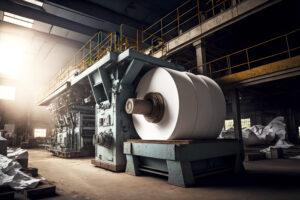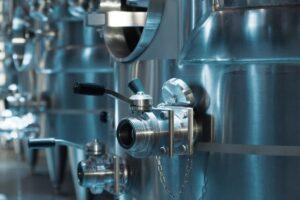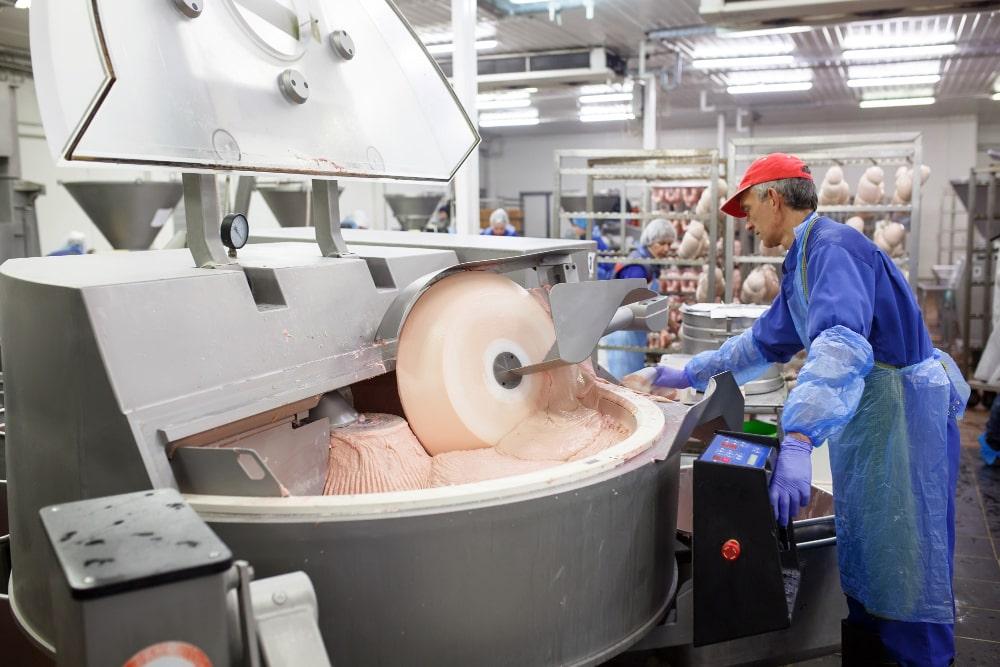
Food manufacture, from food preservation or processing to their packaging and preparation for consumption or repackaging, falls squarely within the large-scale industrial chain of the manufacturing process. This is a large business sector where companies transform raw material into a palatable product, along with any packaging processes that ensure the safety or quality of this food product or its constituent products. This paper gives an in-depth critical look at the food and processing industry, its composition, and why making food available is important to meet global demand.
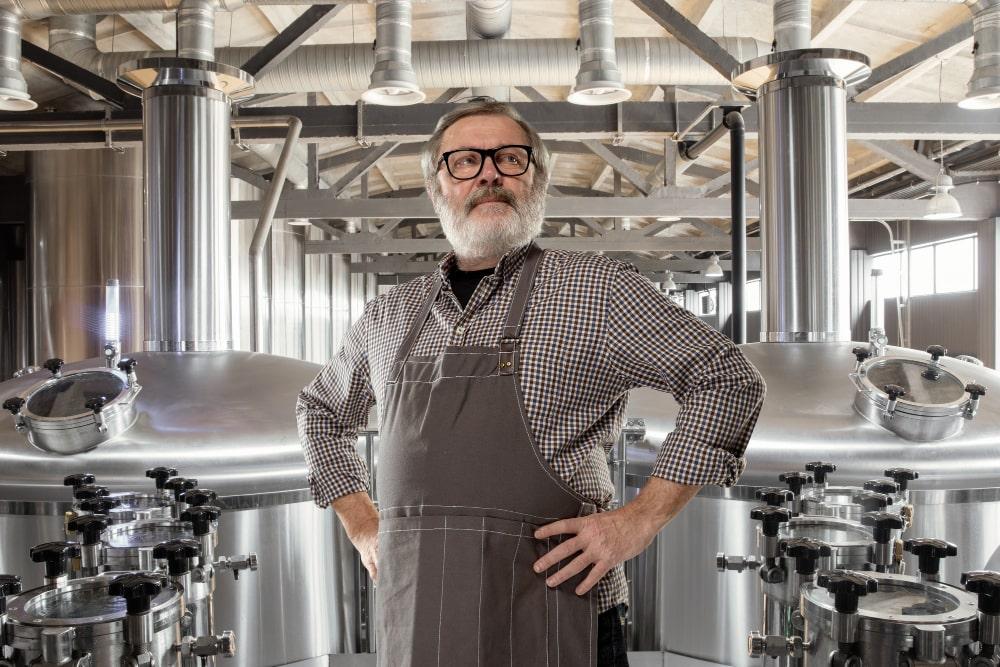
The Food and Processing Industry
The food sector and processing industry encompasses a complex network of activities, from sourcing raw materials to delivering finished food products to consumers. Each stage plays an important role in ensuring food is safe, nutritious, and ready for consumption. The key components comprising the processing and food industry are highlighted below:
Agriculture and Raw Material Sourcing
The basic inputs, that is, agriculture and the supply of raw materials form the very backbone of the food and processing industry. Agriculture involves cultivation, rearing livestock, catching of fish, and other aquatic animals, besides the collection of seafood and wild plants. Such raw materials define the entire supply chain with their quality, quantity, and availability. Farmers and producers work with the environment to grow and raise raw ingredients such as grains, fruits, vegetables, meat, dairy, and more, which are then taken from the environment and transported back to processing plants. The development of sustainable farming methods and responsible sourcing is increasingly featured within the evolving landscape of environmentally sensitive production.
Food Manufacturing and Processing
The raw materials are then transported to the food manufacturing and processing plants where they will be processed into edible products. This stage consists of cleaning, cutting, cooking, and other ways in which the raw ingredients are changed into consumable foodstuffs. Food processing can range from simple actions, such as canning or freezing, to more complex processes like creating packaged meals, beverages, or snack foods. Advanced technology and strict regulations ensure safety, and efficiency in food processing and packaging with nutritional value, and quality retention. The development of plant-based alternatives, functional foods, and ready-to-eat foods through innovations in food manufacturing has also been done to meet the changing trends in consumer preference.
Packaging and Distribution
Once the food has been processed, it is packaged for safety, convenience, and freshness. It saves food from adulteration and assists in keeping it fresh for a longer period of time, while also communicating the details of the product to the consumer regarding its nutritious value and date of expiration. Food packaging may involve canning foods, bottling, boxing, and even vacuum-sealing them into pouches, depending upon the nature of the item and its packaging requirements. Then, packaged foodstuff is distributed among consumers through grocery stores, supermarkets, restaurants, and wholesalers. Distribution includes logistics for the supply chain management of food products in order to bring them to market in a timely manner with quality.
How Food Processing Changes the Economy
Food processing is one of the most important sectors in the global economy, contributing immensely to employment, trade, and overall economic growth. It has been evolving consistently, changing with consumer demand, technology, and world events. The following describes the impact of food processing on the economy in terms of the size of the industry and its growth trend, the effects of world events, and the infusion of new technologies.
Industry Size and Growth Trends
Food processing is one of the most important industries worldwide, ranging from small, regional manufacture of food to large, global food processing companies. This industry provides tremendous job opportunities around the globe. Such growth has been possible due to the increasing demand for processed, packaged, and ready-to-use foods. The population base is increasing at a rapid rate, and urbanization is also growing accordingly. Besides, middle-class population growth in the emerging markets is driving demand for value-added and diversified food products. The global food processing industry has therefore witnessed stable growth, and forecasts are that the segment will continue to grow in the next couple of years. This is likely to be further driven by ongoing changes in consumer preference for healthier and more sustainable food, plant-based products, and functional foods that continue to drive innovation and further growth in the sector.
Global Events and Logistics Issues
Events of a global nature, such as the COVID-19 pandemic, natural disasters, and geopolitical instability, have impacted the food processing business. For instance, the pandemic disrupted supply chains, delayed the sourcing of raw materials, led to labor shortages, and impacted food distribution. These disruptions pointed out weaknesses in the global food supply systems and questioned the reevaluation of logistics strategies. Besides that, international trade policies and tariffs may affect the easy passage, prices, and availability of raw materials and finished products. Logistical bottlenecks, such as congestion in transport and delays in shipment, continue to raise timely delivery issues with food products and indicate the need for resilience and flexibility in supply chains. As these start to settle, the food processing industry is gearing up for newer challenges at a global level to maintain continuity of supply with least risk.
Adapting New Technologies and Ensuring Cybersecurity
Technically, the technology is bound in the future insofar as automation and the use of robots and artificial intelligence are concerned. It will assure efficiency and performance. Automation decreases production time significantly; hence, leading to greater efficiencies, it lowers costs by improving consistency within food quality. AI, together with its algorithms, enables better demand estimation, inventory control, and quality assurance; thus, helping food manufacturers to act more effectively toward the fulfillment of changing consumer expectations and market environments.
However, as is with technology, reliance grows, and so does the need for cybersecurity in the food processing field. More and more, digital systems, IoT devices, and cloud-based storage are leaving food processors more vulnerable than ever to the risks of cyberattacks and data breaches. It is highly important that this sensitive data-production schedules, pricing, and customer information remains secure to instill consumer trust and protect company assets. Therefore, strong cybersecurity practices become quite vital for the contemporary food processing system to avoid potential threats.
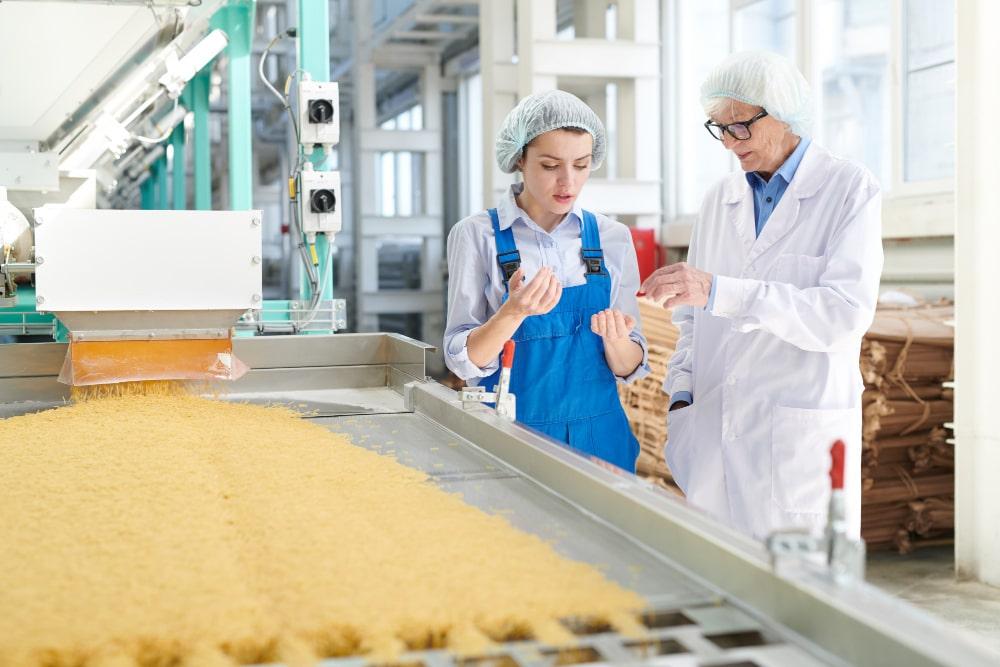
Food and Processing Industry Trends 2025
Going into 2025, the food and processing industry stands at the edge of radical change. Innovation in technology, sustainability, and changing consumer preferences drive the future of the industry. Herein is a look at some key food industry trends that are expected to influence the food processing sector over the next few years:
Impact of AI, Machine Learning, and Blockchain on the Industry
AI and machine learning are taking food processing into the future by enabling manufacturers to ease production, cut down on waste, and improve the quality of their products. Real-time data analytics, predictive maintenance, and better decision-making lead to more efficient operations and lowered costs. Demand forecasting can also be enabled through machine learning algorithms, hence helping companies to predict trends and adjust the production schedule according to consumer needs.
Another innovation gaining significant attention within food processing is blockchain. Whereas food safety, traceability, and transparency have risen to a high level of concern, blockchain works securely and clearly to track the origin of foods right from production to the consumption point. It thus avails companies the capability to track their products’ origin and movement for quality control in order to eliminate fraud or contamination cases. By integrating blockchain, companies can build trust with consumers and also meet the increasing regulatory requirements related to food and beverage safety and authenticity.
Directions for Future Eco-Friendly Practices
The food processing industry is greening up its operations, with sustainability taking the front seat in a view to reduce its emissions to the environment. In this direction, companies are adopting greener methods concerning everything from energy-efficient machinery to the reduction of waste. Plant-based options will go in this direction, too, with the ever-increasing demand for alternative proteins by consumers. In 2025, we will see much more sustainability take center stage through sustainable sourcing, packaging innovations, and reducing waste.
The other trend is the circular food economy, whereby by-products and waste materials from food processing are used again as input in the production of other products. With this economy in consideration, food wastes and plant-based materials can be reutilized into animal feed, compost, or bioenergy, hence reducing landfill wastes and increasing resource use efficiency. Nowadays, companies seek packaging options that are biodegradable or recyclable, hence further reducing their carbon footprint.
Growth Avenues and New Product Developments
In any case, food processing is at that very opportunistic stage, considering consumer preference to currently be at a very evolutionary stage. Functional foods, plant-based products, and healthy snacks demand would rise by 2025 as more and more people are shifting toward healthy diets and eating sustainably. Likewise, the market would change for things such as plant-based meat substitutes, functional beverages, and clean-label products with clear details of ingredients and nutrition.
Besides that, personalized nutrition is what consumers are looking for in food products to meet their specific health needs and preferences, this is another new trend that opens up new avenues of growth for food processors. Advancement of food and processing technology will make the offering of customized food products, which are tailored to meet individual dietary restrictions or health goals, even easier, thus increasing product offerings.
In a world where the population continuously grows, efficiency and sustainability in food production will be greatly enhanced by innovations in automation, robotics, and supply chain management. Food processors that leverage new technologies, have embraced sustainability, and keep a close eye on consumer trends will be the best positioned for the next couple of years.
AMED in Food and Processing Industry
AMED has always been a strong partner in investment aspects for companies operating within the food and processing sector. From enhancing productivity, ensuring quality, and stimulating innovation, this service agency delivers it all. AMED knows the pains of this industry, along with the opportunities, so with immense experience related to this industry, AMED commits to solutions tailored to different client needs.
Be it the optimization of manufacturing processes, developing and implementing the best use of sustainability, or quite simply the development of new food products, AMED possesses the experience and resources required to assist. We will work alongside the client to ensure that the correct technologies, strategies, and best practices are in place to let businesses continue to thrive in today’s competitive marketplace.
In the food and processing industry, there may be certain reliable solutions that are hard to find; that is where AMED can help. For more information on how our value-added services can help your business, please do not hesitate to get in touch with us today. Let us take care of the hassles for you by keeping sustainability with growth in food production and processing.






